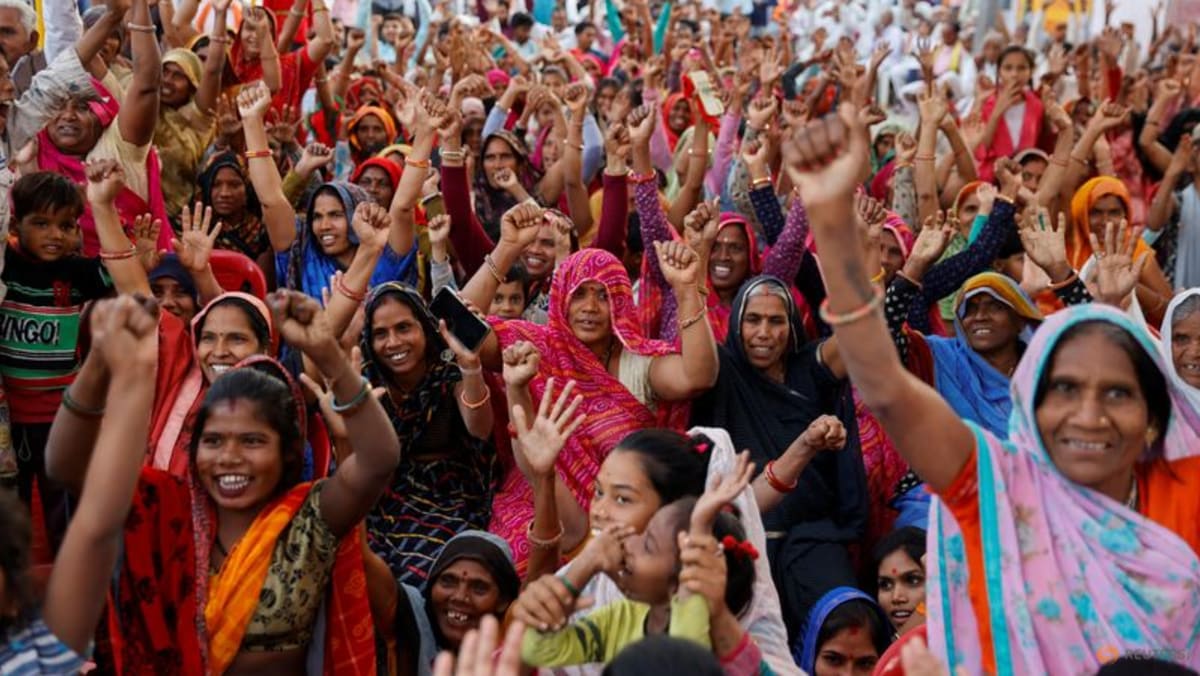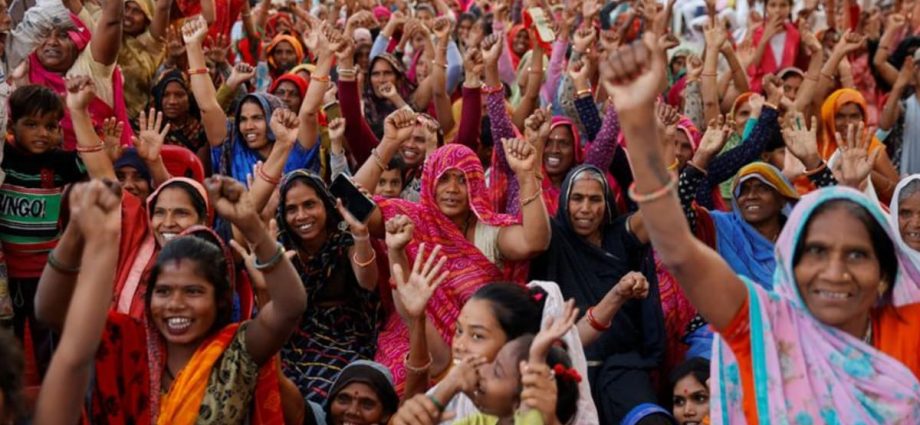
CRIME, POVERTY
Modi’s government however has a mixed record in tackling the horrible rate of crime against women – the latest data from the National Crime Records Bureau shows that on average 88 women are raped in India every day.
Still, only five of the women Reuters interviewed referred to such crimes and said the government could do more for their safety and security.
Tanya Sinha, a 26-year-old who works in Dubai and was visiting her home in Bhopal, said she would vote for Modi but wanted him to work more for women’s safety, without giving any specifics.
Congress, the only party to offer any significant opposition to the BJP, has said it is in the midst of an outreach programme across the country to understand women’s issues and that women as a whole were unhappy with the ruling party because of inflation and rural-urban economic disparities.
“Rising prices and unemployment are impacting women the most,” said Alka Lamba, the party’s women wing chief. “And then there is the issue of safety. Women are dealing with exploitation and atrocities.”
After falling or being stagnant since 2004, female employment rates in India have risen since 2019 due to a distress-led increase in self-employment, according to a recent study by the Azim Premji University.
Puja Dawar, a daily wage worker in Madhya Pradesh’s rural Goutampur village, said her only options for employment were tilling someone else’s farm or working at a local brick kiln, and the most either would pay would be $4 a day, less than two-thirds of the national average.
“For women, there is no work. Over a week or two, I find work as a labourer for one or two days, that only helps with daily expenses,” Dawar said, speaking outside her thatched roof hut coated with mud and cow dung.
She declined to say which party she would vote for in the 2024 elections. “I don’t wish to oppose anyone,” she said. “I just want my work and peace.”
WOMEN LAWMAKERS
Although India has produced a female prime minister, two female presidents and the current finance minister is a woman, women make up only about one in 10 national and regional lawmakers.
The BJP has shepherded a bill to reserve 33 per cent seats in the house and state assemblies for women, which will be effective only from the 2029 general elections.
Senior BJP leader Shivraj Singh Chouhan, who was the top elected official of Madhya Pradesh until December, said empowering women was at the “core of the BJP’s efforts and various government schemes have ensured women are not seen as a burden”.
Traditionally, Indians have preferred sons, who they expect to be more economically productive than daughters.
Despite the crimes against women, rural distress and lack of representation, most of the women who spoke to Reuters said they were overall pleased with the BJP.
Nearly 40 per cent said they were impressed with progress on infrastructure such as roads and railways during the BJP’s rule.
More than a third said they were also pleased that Modi came through on his party’s decades-long promise to build the Ram temple.
“It’s good for the Hindus that Modi has built the temple,” said Preeti Bhardwaj, who runs a beauty parlour in Haryana.
“BJP has also brought about improvements in roads and other infrastructure. Women are now using cooking gas, receiving sewing machines. There is security for women, better than before.”

